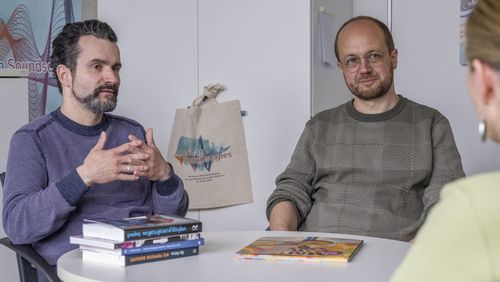How effective is music therapy or choir singing in reducing depressive symptoms and improving quality of life for dementia patients? This is the focus of a study by musicologists and health care researchers from Oldenburg and abroad.
The study is carried out by researchers from six countries, including a team from the University of Oldenburg led by Prof. Dr. Gunter Kreutz. Germany's Federal Ministry of Education and Research provides just over 650,000 euros from European Union funds for the MIDDEL project ("Music Interventions for Dementia and Depression in Elderly Care") over a three-year period.
Research teams from Bergen (Norway), Groningen (the Netherlands), Nottingham (England) and Ankara (Turkey) are also involved in the transnational EU study. The results of the various teams' research are brought together at the NORCE Norwegian Research Centre in Bergen, which coordinates international cooperation and links it to a pilot study in Melbourne, Australia.
"Depression in people with dementia can be effectively combated with music therapy activities, as previous studies have shown," said Oldenburg professor of musicology and leader of the project Kreutz. "We now want to use clinical research criteria to analyse in greater detail how music interventions affect quality of life. This is the key issue." In addition, the team will investigate whether musical activities help to reduce patients' medication use or the frequency of their visits to the doctor.
Two other Oldenburg professors together with their respective research groups are also taking part in the project: Prof. Dr. Antje Timmer, head of the division of epidemiology and biometry, and geriatrician Prof. Dr. Tania Zieschang.
The Oldenburg research team is currently looking for care homes in northwest Germany that are willing to participate in the project. "The pandemic is making the planning of the study more difficult, but we are trying to take all eventualities into account," said Kreutz. Music therapy for groups of three to five dementia patients as well as choir singing in groups of various sizes are planned. The researchers also plan to interview carers and relatives, and compare the quality of life of patients who take part in musical activities with that of other dementia patients with depressive symptoms.






